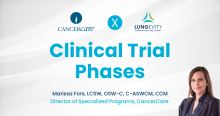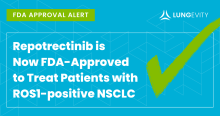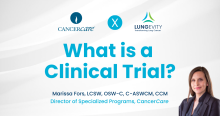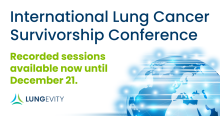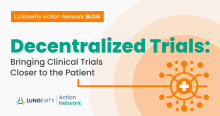New Treatment Approved for Patients with Extensive Stage SCLC
On May 16, 2024, the US Food and Drug Administration (FDA) announced the accelerated approval of tarlatamab-dlle (Imdelltra®) to treat patients with extensive-stage small cell lung cancer (SCLC). This targeted immunotherapy, the first of its kind, is based on new technology. Tarlatamab is a bispecific T-cell engager (BiTE)—a drug with two arms that simultaneously binds to a T cell (a part of the immune system) and a tumor cell. This allows the T cell to come close enough to the tumor cell to recognize and destroy it. Tarlatamab is a second-line treatment that can be considered if chemotherapy





